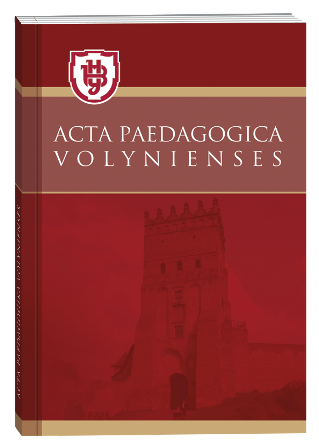THE INFLUENCE OF TEACHING CHEMICAL DISCIPLINES ON THE FORMATION OF PROFESSIONAL SKILLS OF FUTURE DOCTORS
DOI:
https://doi.org/10.32782/apv/2022.1.1.35Keywords:
chemical disciplines, professional skills, medical faculties, medical chemistry, bioorganic chemistry, biological chemistryAbstract
The article considers the impact of studying the three chemical disciplines that medical students begin to study in the first two years, on the formation of professional skills of doctors. Chemical disciplines are of particular importance for the formation of future professionals on the one hand, they are the basis for the formation and development of students’ personality, and on the other hand are the scientific foundation for professionally relevant knowledge and the basis for studying professional disciplines. Curricula in chemical disciplines on the basis of the competence approach are considered. The results of teaching chemical disciplines are formulated in terms of competencies: integral, general and special. Integral competence is defined by the ability to solve typical and complex specialized tasks and practical problems in professional activities. It is also the acquisition of knowledge, skills, abilities that are acquired in the process of studying each specific chemical discipline. General competencies include those that are general in nature and can be formed in the process of studying each of the disciplines and used in other areas to solve situational problems. The influence of the study of chemical disciplines on the emergence and formation of professional competencies in each individual chemical discipline is presented. No less important in the formation of the content of chemical disciplines in addition to structuring the educational material based on the integration of knowledge, is the local modular structuring of information blocks of the discipline on the basis of the competence approach. All components of competence, which are formed by means of chemical disciplines, are considered as elements of a holistic system, where the system-forming factor is their focus on the future profession.
References
Національна стратегія реформування системи охорони здоров’я на період 2015–2020 років. Міністерство охорони здоров’я України. (2014) URL: http://moz.gov.ua/uploads/0/691-strategiya.pdf (дата звернення: 14.09.2019).
Про визнання таким, що втратив чинність, наказу Міністерства освіти України від 2 червня 1993 р. № 161 : Наказ Міністерства освіти і науки від 13 листопада 2014 р. № 1310. Зареєстровано в Міністерстві юстиції України 21.11 2014 року № 1485/26262. URL: https://zakon.rada.gov.ua/laws/show/z1485-14 (дата звернення: 11.05.2018).
Про вищу освіту : Закон України. Відомості Верховної Ради (ВВР), 2014, № 37–38, ст. 20004. URL: https://zakon.rada.gov.ua/laws/show/1556-18 (дата звернення: 20.06.2019).
Про освіту : Закон України. 2017. Відомості Верховної Ради. URL: https://zakon.rada.gov.ua/laws/show/2145-19 (дата звернення: 23.09.2019).
Про стратегію сталого розвитку України до 2030 року (проєкт) (2018). Відомості Верховної Ради URL:http://search.ligazakon.ua/l_doc2.nsf/link1/JH6YF00A.html (дата звернення: 23.05.2019).
Стратегія розвитку медичної освіти в Україні. МОЗ України, 2019. Офіційний веб-сайт МОЗ України. URL: https://moz.gov.ua/strategija-rozvitku-medichnoi-osviti (дата звернення 18.11.2020).
Стратегія сталого розвитку «Україна-2020» : Указ президента України від 12 січня 2015 року № 2/2015. URL: https://zakon.rada.gov.ua/laws/show/5/2015 (дата звернення 11.05.2016).







